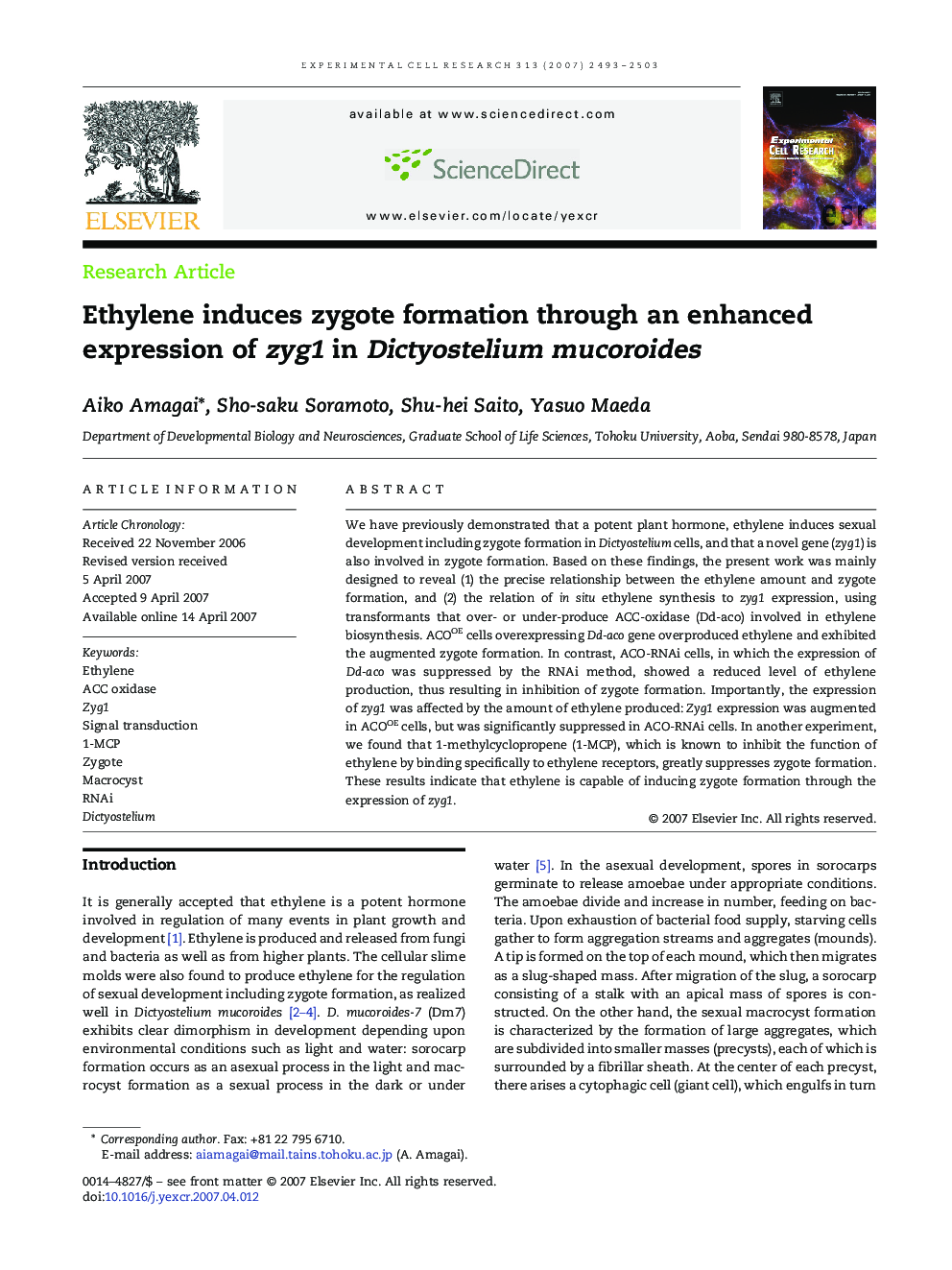| Article ID | Journal | Published Year | Pages | File Type |
|---|---|---|---|---|
| 2131836 | Experimental Cell Research | 2007 | 11 Pages |
We have previously demonstrated that a potent plant hormone, ethylene induces sexual development including zygote formation in Dictyostelium cells, and that a novel gene (zyg1) is also involved in zygote formation. Based on these findings, the present work was mainly designed to reveal (1) the precise relationship between the ethylene amount and zygote formation, and (2) the relation of in situ ethylene synthesis to zyg1 expression, using transformants that over- or under-produce ACC-oxidase (Dd-aco) involved in ethylene biosynthesis. ACOOE cells overexpressing Dd-aco gene overproduced ethylene and exhibited the augmented zygote formation. In contrast, ACO-RNAi cells, in which the expression of Dd-aco was suppressed by the RNAi method, showed a reduced level of ethylene production, thus resulting in inhibition of zygote formation. Importantly, the expression of zyg1 was affected by the amount of ethylene produced: Zyg1 expression was augmented in ACOOE cells, but was significantly suppressed in ACO-RNAi cells. In another experiment, we found that 1-methylcyclopropene (1-MCP), which is known to inhibit the function of ethylene by binding specifically to ethylene receptors, greatly suppresses zygote formation. These results indicate that ethylene is capable of inducing zygote formation through the expression of zyg1.
